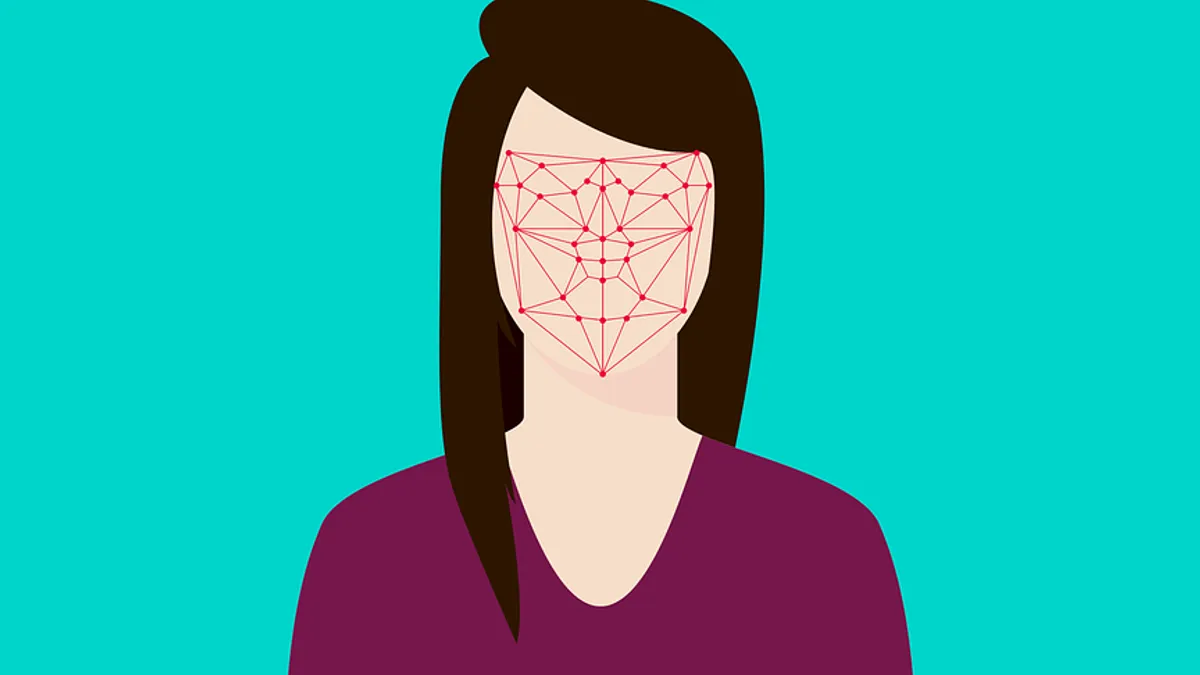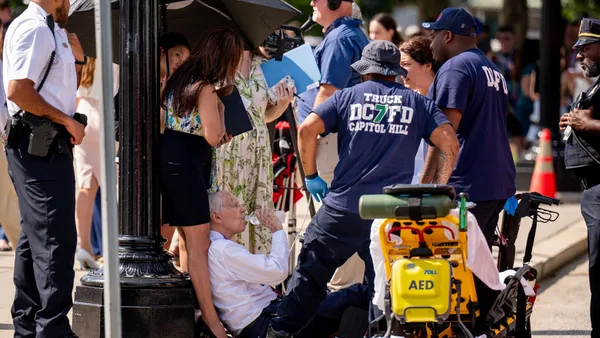UPDATED, May 8, 2019: Earlier this week, the San Francisco Rules Committee voted to advance the "Stop Secret Surveillance Ordinance," which would prohibit local government use of facial recognition technology and require the use of all other types of surveillance technology to be approved by a vote from the city's Board of Supervisors.
The ordinance will go to the San Francisco Board of Supervisors for a final vote on May 14. If passed, the legislation will take effect July 1, making San Francisco the first city in the country to implement such an ordinance. Oakland, CA is also considering similar legislation.
Dive Brief:
- Legislation proposed to San Francisco’s Board of Supervisors could make it the first city in the country to ban government use of facial recognition technology in response to concerns from civil rights groups.
- The bill from supervisor Aaron Peskin would require Board of Supervisors approval before any city agency or law enforcement department purchase or employ new surveillance technology, similar to policies adopted by several other cities. The outright ban on government use of facial recognition is farther than any other government has gone to regulate the technology.
- “We know that facial recognition technology, which has the biases of the people who developed it, disproportionately misidentifies people of color and women,” Peskin told the San Francisco Examiner. "This is a fact."
Dive Insight:
Peskin says the bill builds off the "Privacy First Policy" that San Francisco voters approved in the November election, which required that companies collecting personal data agree to stricter security and transparency measures before getting government contracts. It also follows growing concerns from civil rights and minority groups about the use of facial recognition, which some fear could be used to unfairly target certain groups and relies on technology that has trouble distinguishing among minorities.
The concerns have been especially vocal around Amazon’s Rekognition software, which it is marketing to law enforcement agencies around the country. In December, eight Democratic lawmakers sent a letter about their "heightened concern” over the use of the technology, and the American Civil Liberties Union (ACLU) has said such technology is "primed for abuse in the hands of governments."
Still, the technology has caught on across the country. Orlando, FL has run two pilots with Rekognition, exploring its use in catching suspects and in crowd control. The Department of Homeland Security has used it to help identify people who are overstaying their visas. It’s even found a use in Amazon’s convenience stores and at airports, where biometric scanning can be used instead of boarding documents.
A recent poll from the nonprofit research institute Center for Data Innovation found that only 26% of Americans wanted the government to "strictly limit" facial recognition, and support dropped even more when told the technology would have uses like improved public safety or preventing shoplifting. That could give San Francisco pause as they consider Peskin’s bill; even as voters support protection for data, it’s clear that the benefits of facial recognition technology also hold appeal. An outright ban could put the city behind as its applications spread.










